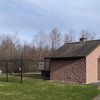Were teachers left out Who should decide on the shape of the school day
GUILDERLAND Several board members, a parent, and a teacher voiced concerns at last week’s board meeting about proposed changes in school schedules. Varied views were expressed on what the board’s role should be in making the changes.
Board member Rose Levy said that many teachers had come to her with their concerns. Levy said she was disappointed that teachers weren’t “more involved in the process.”
One elementary school, Levy said, “didn’t know anything about it.”
Later in the discussion, Levy said that the teachers who talked to her weren’t opposed to change but that they didn’t see any benefits to the proposed schedules.
Strictly speaking, the schedule isn’t a policy matter, said Superintendent Marie Wiles.
The school board sets district policies.
“I think the board deserves to decide whether these matters are policy,” said board member Richard Weisz. “To me, advisory [period is]…reflective of a policy decision. That makes us different than other schools,” he said of the period currently imbedded in the high school day where students may do club activities or get help from teachers for their work.
“Advisory is not a time issue,” Weisz concluded. “It’s the way we form our educational process.”
Board President Colleen O’Connell said that building cabinets made up of faculty, staff, administrators, and parents at each school make recommendations, and the board doesn’t typically vote on them. She said the high school’s building cabinet had met on the proposed new schedule.
“I look at it as an ongoing discussion,” O’Connell said, “and the administration would be guided by our conversation.”
“We’re using the shared decision-making model,” said Superintendent Wiles, stating that there have been twice monthly meetings at the high school on the scheduling changes. She also said that “there’s a shared responsibility” for cabinet members to talk to their constituent groups.
O’Connell asked Levy to state the faculty concerns and, when Levy said she had not brought her notes with her, O’Connell asked her to bring them to the next meeting, on Jan. 24.
Levy also said of the proposed schedules, “We did not get into how cost effective it is….We, as a board, don’t have enough information to make a decision.”
“You don’t have financial implications because we don’t have it,” responded Wiles.
Wiles had made a presentation at the Dec. 13 school board meeting on proposed changes in the school day that would increase flexibility and save money.
“Our exploration is urgent in this time of diminishing resources,” Wiles said then. Facing reduced state and federal aid along with a tax levy limit, the district has projected a $3.3 million shortfall for the next year.
At the high school
Guilderland High School for the last 12 years has used a block schedule where students have four blocks a day, for lengthy classes, on basically a two-day rotation; this allows for seven classes and an advisory period for extra help or enrichment.
Last week’s meeting opened with comments from Janelle Fletcher, the mother of a high school sophomore who uses his advisory period to complete his work, she said. The advisory period “helps students develop relationships with teachers,” she went on, and lets them “take ownership of learning.” She concluded that it is “something unique to our school that has benefited many students.”
The biggest change proposed for the high school is the elimination of the advisory period and the addition of a fifth 49-minute block, which would meet on Mondays, Tuesdays, and Thursdays when there are after-school buses. Clubs would no longer meet during advisory periods, but rather after school during the fifth block; likewise, students would stay after school to get help from their teachers during the fifth block rather than during in-school advisory periods.
Principal Thomas Lutsic said at the Dec. 13 meeting that the new schedule would allow more flexibility and balance in scheduling to better equalize class sizes. During study halls, students could go to learning centers to get help if they needed it, said Lutsic.
Wiles told the board last week that the high school is currently putting together student schedules for next year using both the old and new models. Of the new model, she said, “We won’t lose 30 teachers, probably under five, but what we’d gain is more balanced class sizes.”
She said she hopes to have the data by the February break.
While Weisz maintained parents believed a mandatory study hall would be “a waste of time,” board member Barbara Fraterrigo countered, “What they’re proposing is giving more choices.”
In the 12 years that the high school has had a block schedule, she said, many have complained that, for example, students couldn’t take both music and art. “It opens up more educational opportunities,” Fraterrigo said of the proposed schedule.
She also said that the learning centers, staffed by faculty, could be an advantage for students seeking help as another teacher might explain something in a different way than the student’s regular teacher, and thereby shed new light on the subject.
At the middle and elementary levels
Wiles said at last week’s meeting that the middle school was using a process similar to the high school, discussing schedule changes in cabinet meetings, and having the matter on the agenda for faculty and department meetings.
However, she said, at the five elementary schools, there has been “very little conversation” and noted, “That is a major concern.”
During the public comment period at the start of the Jan. 10 meeting, Kerry Dineen, an elementary music teacher, said, “We have had no input whatsoever and I think that’s a shame.” Teachers, she said, know best what would and would not work with scheduling.
While Wiles said that Dineen’s statements were accurate, she also said, “Elementary classroom teachers will barely feel any difference from this.”
The impact will, rather, be felt by the special-area teachers, like those for music and art. Art and music teachers now have less contact time with students than classroom teachers, said Wiles. “We’re asking special teachers to have more contact time with students,” she said.
Two scheduling options were being considered for the middle school and two for the five elementary schools. (For a full description of these options, go online to www.AltamontEnterprise.com and look under Guilderland archives for Dec. 15, 2011, “At GCSD: Shaping the school day for flexibility and economy.”)
Wiles said that the elementary school principals are pressed with the day-to-day work of running their buildings, leaving little time to develop dialogue on proposed scheduling changes.
The board’s vice president, Gloria Towle-Hilt, said that communication has always been a top goal of the Guilderland school district. “If people have to come to the board…I think we have a problem,” she said.
“There is mass confusion in our parent, teacher, student body at the high school,” said Weisz.
“Let’s get the concerns out,” said O’Connell, stating the board will discuss scheduling at its Jan. 24 meeting. She urged the board members to bring their concerns and comments.
Other business
In other business at its Jan. 10 meeting, the school board:
Heard from Assistant Superintendent for Instruction Demian Singleton that Jennifer Phillips, a Guilderland High School science teacher, has created a website that allows students to diagnose a patient’s genetic disorders based on symptoms;
Learned that third-graders at Pine Bush elementary School raised $1,700 this year for UNICEF (formerly the United Nations International Children's Emergency Fund) and that Leslie Goldman from UNICEF came to the school on Dec. 23, sharing pictures and stories from countries to which she’s traveled, most recently Ethiopia;
Heard that over 70 solar panels were installed on the roof of the round building at Farnsworth Middle School, providing enough energy to power two homes. Students can access both energy production and weather data through a web-based portal;
Received information on the revised state testing schedules;
Heard from Wiles that 17 Lynnwood Elementary kindergarten students visited the district office’s conference room to take a “virtual field trip” to the Bronx Zoo using video conferencing equipment. One student dressed as a zebra and another wore a giraffe hat. Wiles called it “a resounding success” and concluded, “I think it’s a sign of more to come”;
Reviewed policies on the budget, investments, and district compliance with copyright law;
Adopted policies on hazing, in-school detention, student suspension, and student searches and interrogations. The school board had earlier discussed the latter policy at length. (For the full story, go online to www.AltamontEnterprise.com and look under Guilderland archives for Dec. 22, 2011: “Why now? Should GCSD allow police dogs to search high school lockers?”)
Wiles said at last week’s meeting that the school district’s lawyer had advised removing the stipulation that students must be protected from coercion or restraint. “Once police intervene,” said Wiles, “it’s really their show”;
Agreed to appoint Nedra E. Reed to provide psychological evaluation services for Guilderland students at a rate of $100 per hour from Jan. 1 to June 30 with an option to extend the contract through Aug. 31. Although only one proposal was received, the fee is much less than the cost of a private evaluation, according to Assistant Superintendent for Business Neil Sanders;
Established the non-resident tuition rate, based on state calculations, for Guilderland’s three non-resident students at $7,575 for elementary and $11,309 for secondary students, a decrease from last year;
Agreed to sell nine obsolete surplus school buses six large and three small ones to bidders;
Approved an agreement with Upstate Cerebral Palsy, Inc. to provide educational services for a Guilderland student living at an intermediate care facility for the developmentally disabled;
Approved the formation of a new high school club, the 720 Solar Dance Squad. Advised by Marie Chelkawski, the club is for “students who have the talent and heart in street dancing to open up and have a place to dance and practice and learn new choreography,” according to the application; and
Met in executive session to discuss contract negotiations with the Guilderland Teachers’ Association and the Guilderland Employees’ Association. Both units are at an impasse with the district.


